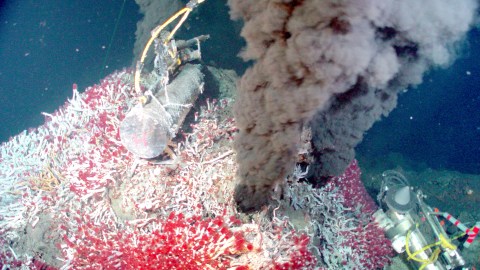Scientists Identify the Common Ancestor to All Life on Earth

Scientists may have identified the ancestor that started all life and where it lived. We are talking about LUCA, the Last Universal Common Ancestor, also known as the “microbial Eve”.
This is the organism from which all modern cells descended which likely lived underwater in hydrothermal vents, an area where seawater and magma come together on the ocean floor.
As the researchers say in their paper in “Nature Microbiology” –
“The concept of a last universal common ancestor of all cells (LUCA, or the progenote) is central to the study of early evolution and life’s origin, yet information about how and where LUCA lived is lacking.”
The search for this single-celled, bacteria-like ancestor from about 4 billion years ago is what prompted William Martin, an evolutionary biologist from Heinrich Heine University in Düsseldorf, Germany, and his colleagues to comb through DNA databanks.
They analyzed a tremendous amount of data, grouping six million genes into related gene families to identify 355 gene families that were present in all modern organisms. These are the families that the scientists believe were also present in LUCA.
This identification led the researchers to a fuller picture of the ancestor they were hunting. The organism likely lived underwater, during the period of Earth’s history called “the late heavy bombardment,” when it was constantly hit by comets and meteors.
LUCA was a “thermophile,” living in an environment without oxygen, feeding on hydrogen gas from hydrothermal vents like those from undersea volcanoes.
“It was flabbergasting to us that we found as many as we did,“ said Martin to the New Scientist. “It’s spot on with regard to the hydrothermal vent theory.”
It’s important to note that the hydrothermal vent theory of where and how life began is just one of the ideas under consideration by scientists, albeit one that has been gaining more and more evidence and support. Another significant theory posits that life began on land, in pools of water that Darwin called “warm little ponds.”
If you want to learn more about hydrothermal vents and volcanoes, check out this video from NOAA (National Oceanic and Atmospheric Administration):




